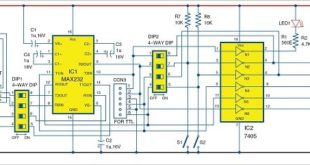This article discusses the latest chips that are transforming the automobile industry.
For many years, the internal combustion engine has been at the heart of the automobile. In the last few years, tiny slices of silicon have increasingly been acting as its brain, telling the engine what to do and when. In this new era, microprocessors and software that run automated and electric vehicles (EVs) have become ever more important.
Power device technologies such as silicon-carbide metal oxide semiconductor field effect transistors (SiC MOSFETs), diodes and high-voltage insulated-gate bipolar transistors (IGBTs) improve the performance of EV systems and charging infrastructure. Multi-tasking, application-specific LSI (system ASICs) controllers reduce complexity and size, and improve efficiency of automotive systems.
Automotive green solutions include LED lighting that reduce energy consumption and extend the life of the lamp (generating less waste). SiC products (MOSFETs and Schottky barrier diodes) improve efficiency and robustness of the systems.
The aim now is to develop components for simplifying system designs, and improving efficiency and reliability. Safety and reliability are paramount for automotive systems.
The focus is also on designing development systems that reduce emissions and help original equipment manufacturers (OEMs) meet demanding standards like BS-VI, for both two and four wheelers.
Focus is also on LSI (ASIC) devices for making control systems simpler and more compact.
Steps to ensure quality and reliability of automotive components are:
- At chip level, develop chip design rules like clearances and routing to improve reliability.
- Set up separate wafer processing facilities for automotive products.
- Modify packaging designs to reduce stresses on wire bonds, leads and solder joints, to improve system-level reliability.
- Stick to relevant AEC standards (Q100, Q101) for all automotive parts.
Latest chips for automotives
Satish R.M, automotive product strategy manager, ROHM Semiconductors, says, “ROHM obtained ISO 26262 process certification, which is an international standard for functional safety for automotive products. Focus applications include electronic fuel injection systems (fuel pump controls, etc), regulators/rectifiers, integrated starter generators, body electronics (lighting, displays, etc), traction motor inverters, DC-to-DC controllers, onboard chargers and charging stations for EVs, and body control modules (lighting, mirror control, power windows, etc), among others.”
ROHM offers EV charging applications and other multiple technologies to benefit automotive systems. These are:
- Robust IGBTs with extended short-circuit capabilities for high-voltage applications such as traction inverters. Unlike conventional IGBTs with short-circuit capabilities, these IGBTs suffer minimum performance loss.
- Robust, high-frequency switching devices (SiC MOSFETS up to 1700V ratings) for high-voltage, high-frequency applications such as onboard charging circuits, DC-to-DC converters and charging stations for EVs.
- Full SiC modules with ratings up to 1200V, 600A for high-power converters. These modules help achieve high efficiency for fast-charging DC charging stations for four-wheeled EVs.
Amith Kumar, Technical support, Analog Devices, says, “We provide two latest chips for the automobile industry: LTC6813 and LTC3895. Application areas for these chips are battery management systems for EVs and high-vin DC-to-DC converters. Accuracy and reliability are our prime criteria while designing these chips for automobiles.”
LTC6813 is a multi-cell battery stack monitor, which can measure up to 18 series connected battery cells. Cell measurement range of 0V to 5V with a total measurement error of less than 2.2mV makes it suitable for most battery chemistries. Multiple LTC6813 parts can be connected in series for simultaneous cell monitoring of long, high-voltage battery strings. For high-speed, radio frequency (RF)-immune, long-distance communications, each device has an isoSPI interface.
LTC3895 drives an all n-channel MOSFET power stage. It is a high-voltage, non-isolated synchronous step-down switching regulator controller, designed to operate from a high input voltage source (4V to 140V) or from an input that has high voltage surges. It eliminates the need for external surge suppression devices. When input voltage dips to 4V, it continues to operate at up to 100 per cent duty cycle. This makes it well suited for transportation, robotic industrial control and datacom applications.
Jai Prakash Chauhan, design engineer, NXP Semiconductors, says, “NXP designs and develops advanced electronic systems to safeguard vehicles. Major areas of focus are in-vehicle networks, microcontrollers (MCUs), processors, radars and secure car access.
“Processors are designed for efficient and intelligent communication networks in the vehicle like CAN transceivers and controllers (for high-speed CAN applications); LIN, ISO9141 and J1850 physical interfaces that support various communication protocols; FlexRay transceivers for high-bandwidth applications; LIN transceivers for low-cost communication solutions and system basis chip for integrated automotive MCU-based systems.”
These processors are used for designing advanced driver assistance systems (ADASes), body, chassis, powertrains and safety applications. Some available families are S32, S32K and S32R27 for automotive and industrial radar, S12 and S12X for wide memory and pin scalability, S32S for safety applications, S08 for high performance and low power, S32V for vision-processing applications and MagniV series for mixed-signal applications.
Rajiv Baby, application engineer, Qualcomm, says, “Qualcomm C-V2X 9150 chipset directly connects vehicles to everything (V2X)—to each other, to pedestrians, to roadway infrastructure and to the network. It extends a vehicle’s ability to provide a higher level of predictability for enhanced safety and autonomy, by looking further down the road.
“We have integrated V2X safety services with Wi-Fi-based dedicated short-range communications. C-V2X 9150 is integrated with GNSS capability for accurate positioning. An application processor running intelligent transportation systems V2X stack and hardware security module provides secure V2X communications.”

Researchers all over the world are working on systems-on-chips (SoCs) that integrate all necessary electronic components on a single chip, rather than single application chips. SoCs are used for in-car media to provide powerful solutions for multimedia applications. Examples include AM/FM radio chips, car radio on/off logic chips, audio amplifiers and multi-standard digital radios.
SoCs are also used in advanced motor controls for automotive and industrial applications. Some examples are motor drivers, low-side switches, high-side switches, anti-braking systems, squib drivers, pre-drivers and configurable switches for load control.
These are used in battery and power management, too. High-efficiency switching regulators, and lighting control and power management ICs are some examples.
SoCs have applications in ADAS, including advance features like electronic beam steering for object detection in wide range and safety systems like emergency braking, adaptive cruise control, blind spot monitoring, cross traffic alert and automated parking, among others.
Last, but not the least, SoCs are used for secure and convenient vehicle access and in immobiliser systems. These include technologies such as NFC and RF/UHF link with advanced encryption and protocol support.
This content was originally published here.








